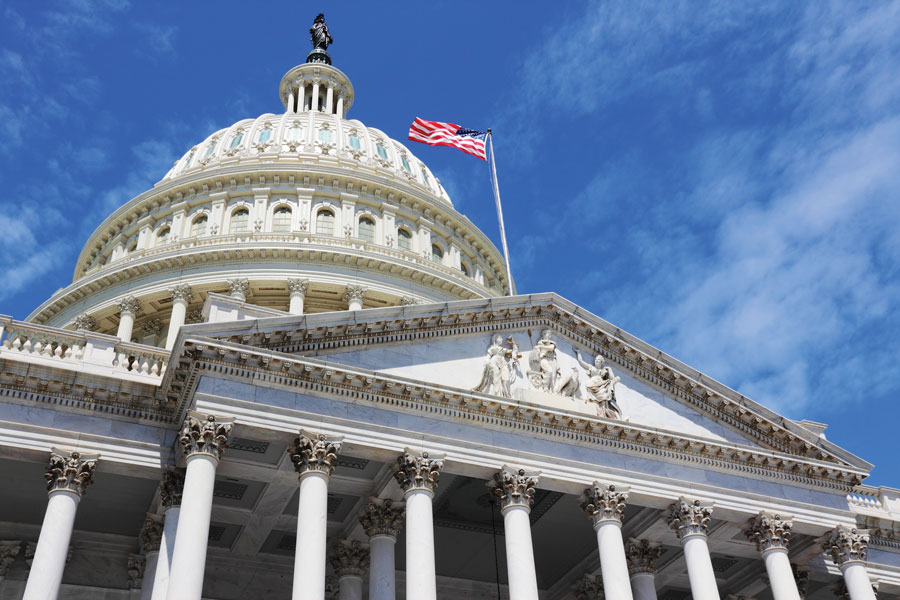Financial advisers expressed mixed feelings about the SECURE Act, which the House approved Tuesday as part of a federal spending bill.
The House voted, 297-120, to advance the bill to the Senate, where it is expected to be approved as early as Wednesday and then sent to President Donald J. Trump to be signed into law.
The
$1.4 trillion bill would fund the government through September and avert a shutdown at the end of the week, when a stopgap measure is set to expire.
As
financial industry advocates hoped, the
Setting Up Every Community for Retirement Enhancement Act was attached to the omnibus spending legislation after running into a delay in the Senate. It was originally approved by the House, 417-3, earlier this year.
The SECURE Act, as it is popularly known, would bring about the biggest changes in retirement policy in a decade — providing legal protections for employers that include annuities in retirement plans, making it easier for small businesses to band together to offer retirement plans, and increasing the age for required minimum distributions to 72 from 70½. It also would allow long-term part-time workers to participate in 401(k) plans and require plans to make lifetime income disclosures.
The bill would require most non-spouse beneficiaries of individual retirement accounts to
take distributions over 10 years instead of over their lifetimes. The change would increase tax revenue to pay for other parts of the bill. Most provisions of the measure would go into effect on Jan. 1.
[
Recommend video:
How and why to target a niche]
Generally, financial advisers support the provisions of the bill that would boost the number of workplace retirement plans and the number of employees covered and increase the RMD age.
"Anything that can produce an inducement to get the average American worker to save is a big deal," said George Gagliardi, owner of Coromandel Wealth Management. "It's a plan for the vast majority of American workers. It's a big win for most everybody."
Most everybody except those who have saved a lot of money in their 401(k) plans and IRAs and intend to bequeath it to their children or relatives other than their spouses. Under the bill, the beneficiaries would have to liquidate the inherited plan within 10 years.
That would cause a headache for many of George Reilly's clients. He has been working with them to set up trustee-managed inherited IRAs that would prevent young beneficiaries from spending the money too fast.
"It's going to impact a lot of plans that are in place now," said Mr. Reilly, founder of Safe Harbor Financial Advisors. "They have to be re-written."
The good parts of the bill don't outweigh the drawback of the so-called stretch-IRA provision, said Deaton Smith, president of Thayer Financial.
"That really hurts family wealth accumulation," Mr. Smith said. "That is going to bump [beneficiaries'] taxable income to pretty significant margins."
Advisers also have qualms about the provision that would make it easier to include annuities in retirement plans.
"Annuities are complicated, and there are a lot of hidden fees," said Jennifer Weber, vice president of financial planning at Weber Asset Management. "I'm worried that sales people would sell you a product that's not best for your investment needs."
Jonathan Bednar, co-owner of Paradigm Wealth Partners, has a similar worry.
"Annuities are complex products, and most 401(k)s are self-directed," Mr. Bednar said. "That adds further complexity and confusion for investors. At the end of the day, that's a net negative for the retirement community."
The bill was a priority for the insurance lobby. Dan Houston, chief executive of the Principal Financial Group, said the measure includes provision to boost wealth accumulation and to provide for an income stream in retirement.
"It checks all the boxes for improving the odds of American workers' financial stability in retirement," said Mr. Houston, who also is chairman of the American Council of Life Insurers. "There's a lot of win-win."
Mr. Houston is confident the market will respond with retirement-plan annuity options that are safe and affordable.
"There will be an emergence of new guaranteed-income products that will be competitively priced for medium to small employers," Mr. Houston said.







